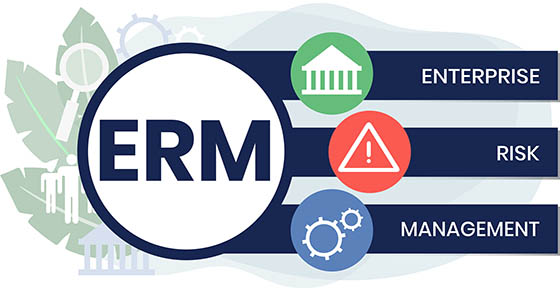Get ready for the 2023 gift tax return deadline
- ByPolk & Associates
- Feb, 14, 2024
- All News & Information
- Comments Off on Get ready for the 2023 gift tax return deadline
Did you make large gifts to children, grandchildren or others last year? If so, it’s important to determine if you’re required to file a 2023 gift tax return. The deadline for filing is April 15 (Oct. 15 if you file for an extension). The annual gift tax exclusion has increased in 2024 to $18,000 but was $17,000 for 2023. Generally, you’ll need to file a return if you made 2023 gifts that exceeded $17,000 per recipient (unless to a U.S. noncitizen spouse) and in certain other situations. But sometimes it’s desirable to file a gift tax return on Form 709 even if you aren’t required to. If you’re not sure whether you must (or should) file a gift tax return, contact us.
What’s the best accounting method route for business tax purposes?
- ByPolk & Associates
- Feb, 14, 2024
- All News & Information
- Comments Off on What’s the best accounting method route for business tax purposes?
Businesses basically have two accounting methods to figure their taxable income: cash and accrual. Many businesses have a choice of which method to use for tax purposes. “Small businesses,” as defined by the tax code, are generally eligible to use either cash or accrual accounting for tax purposes. The Tax Cuts and Jobs Act simplified the definition by establishing a single gross receipts threshold of $25 million (adjusted for inflation). This expanded the benefits of small business status to more companies. For 2024, a small business is one whose average annual gross receipts for the three-year period ending before the 2024 tax year are $30 million or less (up from $29 million for 2023).
Filing jointly or separately as a married couple: What’s the difference?
- ByPolk & Associates
- Feb, 14, 2024
- All News & Information
- Comments Off on Filing jointly or separately as a married couple: What’s the difference?
When filing your tax return, a filing status must be chosen. This is used to determine your standard deduction, rates and eligibility for certain tax breaks. If you’re married, should you file jointly or separately? It depends on your situation. You should generally use the status that results in the lowest tax. But remember: If you file jointly, each spouse is “jointly and severally” liable for tax on your combined income (as well as any other tax, interest and most penalties the IRS assesses). So the IRS can come after either of you for the full amount. In most cases, joint filing saves more tax, but some people save by filing separately. We’ll weigh the options when preparing your return.
How businesses can reinvigorate strategic planning
- ByPolk & Associates
- Feb, 14, 2024
- All News & Information
- Comments Off on How businesses can reinvigorate strategic planning
Many businesses may get so caught up in day-to-day operations that strategic planning goes by the wayside. This can be dangerous, as a sudden market shift or disruptive competitor could leave your company slow to react. Ideally, engage in strategic planning at least annually or every few years. If possible, get your team out of their usual workspaces and hold a retreat where they can focus solely on strategic planning. Consider engaging a professional facilitator to encourage participation and stick to the agenda. Above all, focus on setting clear goals and creating an action plan that includes strategies and specific objectives to achieve those goals. Contact us for help.
9 tax considerations if you’re starting a business as a sole proprietor
- ByPolk & Associates
- Feb, 14, 2024
- All News & Information
- Comments Off on 9 tax considerations if you’re starting a business as a sole proprietor
When launching a business, many entrepreneurs start out as sole proprietors. If you’re launching a venture as a sole proprietorship, you need to understand the tax issues involved. For example, you may be eligible for the pass-through deduction on qualified business income. You must pay self-employment taxes and make estimated tax payments on income earned. For 2024, these are due April 15, June 17, Sept. 16 and Jan. 15, 2025. If you hire employees, you need a taxpayer ID number and must withhold payroll taxes. Keep complete records of income and expenses. Also, consider setting up a retirement plan. Contact us if you want more information about the tax implications of running your business.
3 common forms of insurance fraud (and how businesses can fight back)
- ByPolk & Associates
- Feb, 14, 2024
- All News & Information
- Comments Off on 3 common forms of insurance fraud (and how businesses can fight back)
Businesses need insurance, but dishonest individuals can exploit it. Here are three of the most common forms of insurance fraud: 1) Premium diversion occurs when an employee or insurance agent steals funds intended to be premium payments and uses them for personal or other business expenses. 2) Workers’ compensation schemes involve employees fabricating or exaggerating injuries or illnesses to receive benefits. 3) Health insurance scams happen when someone adds a fake employee to the plan or uses a stolen identity to enroll a nonexistent dependent. To fight back, choose providers carefully, develop strict claims policies and offer a fraud prevention hotline. Contact us for help.
If you gave to charity in 2023, check to see that you have substantiation
- ByPolk & Associates
- Jan, 30, 2024
- All News & Information
- Comments Off on If you gave to charity in 2023, check to see that you have substantiation
Did you give to charity last year? To receive a tax break, you must itemize deductions on your tax return. To claim a tax deduction for a donation of $250 or more, you need a “contemporaneous” written acknowledgment from the charity. Contemporaneous means you receive it by the date you file your return, or the extended due date of the return. If you made a donation in 2023 but don’t have a letter from the charity yet, request it from the organization and wait to file your 2023 return until you receive it. Additional rules apply to certain types of donations, such as noncash contributions. Contact us if you have questions about donations you hope to deduct on your 2023 tax return.
Update on IRS efforts to combat questionable Employee Retention Tax Credit claims
- ByPolk & Associates
- Jan, 30, 2024
- All News & Information
- Comments Off on Update on IRS efforts to combat questionable Employee Retention Tax Credit claims
The Employee Retention Tax Credit (ERTC) provided cash that helped struggling businesses retain employees during the pandemic in 2020 and 2021. The IRS reports that it has received a deluge of “questionable” ERTC claims on amended tax returns after unscrupulous promotors asserted that large refunds could easily be obtained, even though there are strict eligibility requirements. The IRS has now created a Voluntary Disclosure Program that allows businesses to pay back money they received after filing erroneous claims. The application deadline is March 22, 2024. If a business is accepted into the program, the employer only needs to repay 80% of the money it received. Contact us for help.
Seeing the big picture with an enterprise risk management program
- ByPolk & Associates
- Jan, 30, 2024
- All News & Information
- Comments Off on Seeing the big picture with an enterprise risk management program
No business can operate risk-free. Those that try will miss out on growth opportunities and probably get surpassed by more ambitious competitors. One way to manage your company’s “risk profile” is to implement an enterprise risk management (ERM) program. It’s a top-down framework that addresses risk at each organizational level. Unlike traditional risk management techniques, which are often informal and “siloed,” an ERM program recognizes that many risks are enterprise-wide and interrelated. An effective ERM program helps you not only identify major threats, but also devise feasible strategic, operational, reporting and compliance objectives. Contact us for more information.
IRAs: Build a tax-favored retirement nest egg
- ByPolk & Associates
- Jan, 30, 2024
- All News & Information
- Comments Off on IRAs: Build a tax-favored retirement nest egg
Traditional and Roth IRAs can help you save for retirement on a tax-favored basis. Contributions to a traditional IRA reduce your current tax bill if you’re eligible, and earnings are tax deferred. However, withdrawals are taxed in full (plus a 10% penalty if taken before age 59½, unless an exception applies). Roth IRA contributions aren’t deductible. But earnings are tax deferred and withdrawals are tax-free if certain conditions are met. The maximum annual IRA contribution is $7,000 for 2024 and $6,500 for 2023 (plus $1,000 if age 50 or over). But your contribution can’t exceed compensation includible in income for the year. There’s no age limit for making contributions if you’re eligible.









